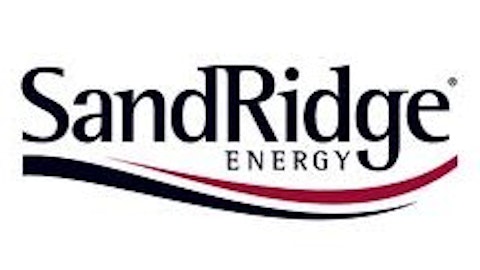Insider Monkey published the Q2 2019 Commentary of Rhizome Partners, you may read it here. In the said letter, Rhizome’s Managing Partner Bill Chen talked about Calumet Specialty Products Partners, L.P. (CLMT).
Chen defined Calumet as a “distressed special situation investment” for Rhizome Partners. He added that the leverage and oddball nature of the company result in an “orphaned stock” that has an unclear best owner shareholder base. However, he said that he likes what Calumet is doing recently. According to him, the company’s culture is improving and becoming more competitive. He also praised Calumet’s style of investing in higher ROIC products like TruFuel and Versagel. He thinks that the company will sell the fuel refineries within the next year, which could result in a deleveraging event. Chen believes that Calumet may deleverage faster than he previously thought.

Here’s Rhizome’s full commentary on Calumet Specialty Products:
“Calumet Specialty Products – This specialty chemical manufacturer is a distressed special situation investment for us. It is a specialty chemical company placed inside a Master Limited Partnership and covered by fuel refining analysts. The leverage and oddball nature results in an orphaned stock with no obvious best owner shareholder base.
Q2 2019 Updates – At the end of Q2, Calumet bonds traded between 96 to 100 cents on the dollar. This is a strong recovery from the high 70s to low 80s that the bonds traded during the fourth quarter of 2018. The company reported healthy results for Q1 and indicated that they have bought back a total of $50 million of bonds as of May 10th. We participated in an investor meeting hosted by Goldman Sachs in New York City in mid‐May and were able to get 2‐3 hours of face time with the management team.
It is apparent that we were the more knowledgeable shareholder in the group as our questions tended to be more granular and qualitative while other participants tend to ask more “intro level” questions. We heard lots of “anecdotes” of process improvements on an organizational level at Calumet. We believe that Calumet’s culture is improving and becoming more competitive over time. Calumet continues to invest in branded and higher ROIC products such as TruFuel and Versagel. Increases of EBITDA for branded and cosmetic products have a 10‐12x multiplier effect as these better businesses command higher multiples. We are also more convinced that Calumet will likely sell the fuel refineries in the next 12 months as specialty EBITDA normalizes upward while the fuel refining EBITDA normalizes downward following a “windfall” year in 2018. Thus, selling fuel refineries in 2019 will result in a “de‐leveraging” event while selling them in 2018 would have the opposite effect and would result in Calumet missing out on the refining free cash flow from 2018. We are watching what Calumet is doing and we like what we are seeing.
We recently built a bear, base, and best case scenario analysis on the de‐leveraging outcomes assuming various sale prices of the Montana and San Antonio fuel refineries. It is possible that Calumet could potentially de‐lever to $560mm, $737mm, and $894mm of net debt by March 2021 under our best, base, and bear case scenarios. Our key assumptions consist of a range from $400mm to $525mm of proceeds from the sale of the two non‐core fuel refineries and $180 to $220mm of specialty EBITDA in the remaining company. In the bear case scenario, capital markets will play a much bigger role in determining the refinancing of Calumet’s 2021 bonds and at what interest rate. Under both base and best scenarios, Calumet may be able to pay off the entirety of the 2021 maturity of $900mm through asset divestitures, free cash flow generation, and drawing a small amount of the revolver. We had not previously considered the potential to pay down the 2021 bond without accessing the capital markets. This change in perception is due to our discovery that fuel refineries, despite being a cyclical and capital intensive business, do have attractive features that are very different than low barrier businesses such as container shipping. NIMBY‐ism plays a large role in limiting the new construction of refineries in the US. This is very different than shipping assets where the increase in supply is almost guaranteed and often subsidized by various Asian governments because shipbuilding creates lots of blue collar jobs. We believe that we have previously underestimated the potential proceeds of “Badco” in an asset sale. Thus, we were a bit stunned to come to the realization that Calumet could potentially de‐ lever much faster than we previously thought.”
Disclosure: None. This article was originally published at Insider Monkey.





